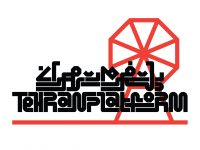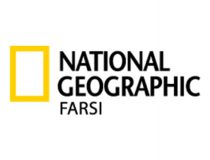
Technological life in the future will be a series of endless upgrades and the rate of graduations is accelerating. As the population in our cities is increasing rapidly, so is the number of diverse possibilities through which cities and citizens are interacting mutually. After two episodes of Tehran Inside-out, focusing on innovative ways to make our cities more responsive towards our lives, it’s time to put more emphasis on what our surrounding environment wants us to know. We want to listen to our surrounding, collect data with a specific story behind, invent creative strategies for storytelling and motivate citizens to dig deeper.
Our physical environment is continuously being monitored. There are various sets of data available; each describing an environmental phenomenon. But, we never bend our data gathering process to what a common tool can offer out of the box. We’re not looking for ready-made solutions. Instead, we take advantage of recent technologies to design creative tools and processes to acquire desired datasets.
Although data gathering is a fundamental step in our process, numerical data don’t mean anything by themselves. Even though each data set is a placeholder for something else, it needs some kind of translator to acknowledge and leverage this knowledge by bringing society closer to the represented information.
In this constant state of becoming, our main focus will be on creative solutions for data to become information. Inventing tools and experiences to shed a light on the stories behind these datasets is what we are investigating in Global Summer School 2019. Relying on emerging technologies to add a narrative to the data and create unexpected aesthetics is our main strategy to share what these numbers actually represent. Scripting Awareness is what we call this process of sharing information.
IAAC Global Summer School is a full-time two week course, 1-14 July 2019, that provides both practical and theoretical knowledge. The program is led by expert tutors, combined with lectures by renowned professionals and academics relevant to the topics to be treated during the course. These will be broadcasted in the different node-cities, all globally connected. Tehran node’s program also includes a series of local lectures. Participants will join a global agenda and an international laboratory at their disposal to test their design hypothesis, understanding how design conclusions derived locally can be tested and evolved globally in the different cities where other teams reside.
The course will be taught by tutors from different fields structured in two subsequent phases. Over the first days of the workshop, computational design systems will be introduced in a series of intensive ‘tooling-up’ sessions as the basis for investigating associative design concepts and methodologies. The aim of these design exercises is to introduce expertise in open-source technologies. In a second stage of the workshop, students will develop design proposals responding to studio brief.
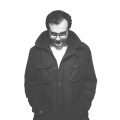
MEHRAN DAVARI
Mehran Davari is an Architect, Researcher, and educator based in Tehran, Iran. With a background in interdisciplinary mathematical/architectural studies, he graduated with a Masters degree in Emergent Territories from Institute of Advanced Architecture of Catalonia (IaaC) in 2013. His research focuses on emerging technologies in design and fabrication, cross-platform knowledge in art and architecture, computational and generative design and interdisciplinary architectural practices.
He is the co-founder of TehranCRAFT as an annual experimental collaborative project, focused on adaptive fabrication scenarios.
In 2015, he founded TEHRAN PLATFORM for experiential design and fabrication, a project space for multi-disciplinary design, new and emerging architecture, fabrication technologies and Material behavior system developments.
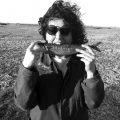
ROJIA FOROUHAR
Rojia Forouhar is an architect, researcher, and educator based in Tehran. She is an AA graduate and holds the AA diploma and a Masters in History, Theory and Critical Thinking and has attended the Abbas Kiarostami Masterclass.
She has worked at Zaha Hadid Architects in London and with various architects in Tehran.
She has taught several workshops focused on Cinematic Architecture at the AA and has been a visiting tutor at the University of Brighton and Oxford Brooks. She has also taught a workshop at the Ghavam event in Shiraz and urbanism design studio at Azad University, Tehran.
She is interested in interdisciplinary projects and has collaborated with architects, artists, and writers. She has collaborated on the film The Story of Boulevard, that was awarded the Honar-o-Tajrobeh prize at the 11th Haghighat Film Festival.
She has lectured on “How the city can be an inspiration to Artists and Architects”, “Common Sense – Architecture and the environment”, “Against Nostalgia”, “Technology- at our service”.
She regularly publishes, essays in Underline Magazine and is a contributor to other publications too. “Above the Parapet” on the role of women in Architecture in Iran, “A tradition in concert”, “Form is All We Have” are titles of some of her writings. Her most recent project Invisible Tehran[s] explores the relationship between space and text, a book of drawings, pictures, and essays related to this project will soon be published. She is currently running a collective project “Tehran, Interior Sequences” that is concerned with film as an accidental archive of architecture, this project, in particular, is concerned with Tehran’s domestic spaces.
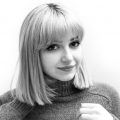
NILOOFAR NAJAFI
Niloofar graduated with a bachelor’s degree of architectural engineering from Shahid Beheshti University of Tehran and received her master’s degree in computational architecture from University of Tehran where she was focusing on the development of prototypes that promote transdisciplinary approaches towards architecture and urban design.
She started her professional career as the co-founder of “Tehran Platform”, a project space based in Tehran, with an emphasize on design practice through logic and magic. She is a designer, researcher and creative thinker whose main focus is to create novel spatial experiences by integrating content, interactivity, architecture, and technology.
“Nat Geo Center” is a cultural arts center associated with National Geographic magazine Farsi edition (Gitanama). The organization has multiple sectors including Nat Geo Hall, Nat Geo Room, Nat Geo Cafe, and Nat Geo Art Gallery. Nat Geo Hall is dedicated to events such as book launches and scientific, artistic, cultural and historical workshops. Its main focus is to promote social development through scientific and cultural progress.
Address: No.14 | 35th St | Alvand St | Argentina Square
IAAC GSS is open to creative and innovative people who are interested in fields such as architecture, urban planning, digital fabrication, design, etc., searching for a multidisciplinary experience in an international environment. No previous skills are required, although CAD design, programming and digital fabrication skills are welcome. The official language of the course is English.
After the course, the participants will have gained theoretical and applicative knowledge about advanced design strategies. They will be familiar with parametric software, data visualization and use of digital machines. The last day of course participants will join a presentation of developed projects reviewed by a renown jury and will receive a Global Summer School Diploma.
Each participant is responsible to investigate which documents are required via the embassies in their country of origin. The school will provide a confirmation letter regarding the participation to the course, and will assist where possible the visa process.
Because of the issues in Iran which resulted in the great fluctuations of Rial to Euro currency exchange rate, this year the fee for Tehran is 3.2 million Toman. There’s an early bird registration offer available for 2.8 million Toman until 30th of May. All the fee includes all material costs needed for the course. No additional registration fee is required. Flight tickets, accommodation, and food are not included in the fee. Each participant should bring his/her own computer with the software installed. Further details about the software will be given to the participants upon acceptance.
In order to register to the Global Summer School, participants need to submit the online application form, where they will be asked to fill their personal details and to upload a CV. A portfolio is not required. GSS19 dates are from 1-14 of July 2019 and applications are open until June 22.
For more information email: [email protected]
You can reach Tehran Platform at: +989021414682
